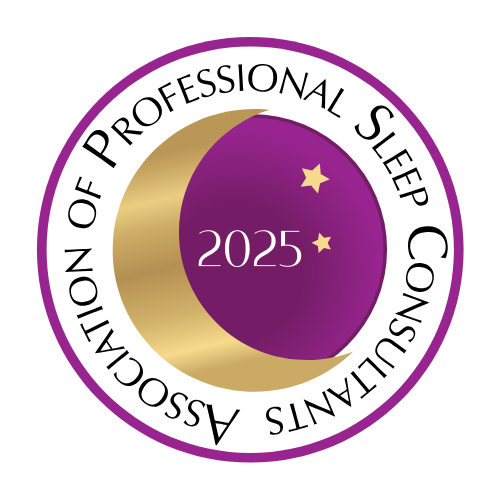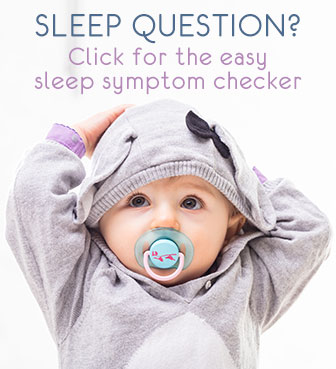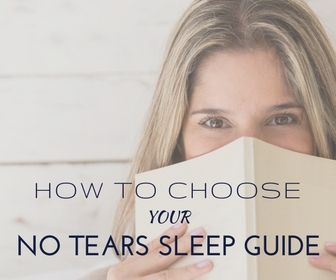Simple Relaxation Techniques to Help You Sleep
Author Name: Heidi Holvoet, PhD

Simple relaxation techniques
are among the best sleep aid
options.
When
baby sleeps, sleeping well yourself is the best cure.
Unfortunately, disrupted
nights, worrying and life's demands may keep you awake,
even if you're very tired. But insomnia is the last thing you need
right now.
If you manage to be well rested, you will
feel better
and
have more energy
so let's see how to get there.
The simple relaxation techniques below are
easy to do
: they
require no tools and no experience nor any spiritual inclination.
Try them
in bed to help you fall asleep and throughout the day when you have a
quiet moment.
Breathing and Meditating
Breathing in itself is a wonderful relaxation technique, and a basic but powerful meditation technique as well. Conscious
breathing keeps your mind focused on healthy
breathing, leaving your
body relaxed.
Healthy
breathing
includes expanding both belly and chest. Many of
us are used to breathing mainly through the chest. Using the belly too
improves oxygen supply and helps your body relax overall.
1.
Conscious Breathing
Lie down comfortably and notice how
you are breathing. When inhaling, lift both your belly and your chest.
Make your exhaling long, blowing all the air out.
Take deep in-breaths too (not extremely long though), gently lifting belly and chest, hold your breath for a few counts, then make your out-breaths as long as you can. A good rate is 4-5-6: 4 counts to breathe in, 5 holding your breath and then 6 counts breathing out, longer if you can to push all the air out.
Think your
muscles from time to time: especially shoulder and neck muscles tend to
tighten up when you start focusing on breathing. Release them by
letting them sink down into the mattress.
2. Counted Breathing
If your attention easily drifts off while resting or trying to sleep,
counting your breaths
can be a great help. After a few sets of conscious breathing as above, let your breathing go back to normal, i.e. not making the breaths particularly long or deep or anything. Just allow your breaths to go to their natural rhythm, not worrying whether they're fast, shallow or where in the the body you feel them most. The only thing to do is
observe
your breaths: do this by counting each in- and exhalation: inhale-one, exhale-two, inhale-three, and so on.
Start over from 1 when you reach 10. If you drift off at ay point, simply
return to counting, starting at 1.
3. Guided Meditation
There is
one huge difficulty
when doing these techniques - it can be SO hard to stay focused!
Our minds get so busy and so used to thinking and worrying, and it's amazing how difficult that makes it to do a seemingly simple exercises as counting breaths for just a few moments.
My own solution for that is a meditation app, with guided meditations i.e. a voice takes you through the steps and keeps your focused on your breaths etc. There are lots of meditation apps out there, my personal favorite is
HeadSpace
- I am not affiliated with them so I don't get paid to say this, it's just the only app I like and use.
Article Author: Heidi Holvoet, PhD - Founder, senior sleep consultant

Heidi Holvoet, PhD, is the founder of the Baby Sleep Advice website and movement, an award-winning author, baby & toddler sleep consultant with 17+ years experience as well as a certified lactation counselor.
Over the years, Heidi has received several awards inluding a Mom's Choice Award (MCA) and National Parenting Awards (NAPPA) for her Baby Sleep Advice website, programs and books. Also, Baby Sleep Advice was awarded "Most Trusted Infant's Sleep Solutions Company 2023" in the Benelux Enterprise Awards 2023.
Heidi continually conducts personal research and participates in continued education and in that way stays up to date with current scientific and pyschosocial infant care.

She is also a member of the Association of Professional Sleep Consultants of which she was one of the earliest contributors. She obtained her PhD degree in physics at the University of Ghent in Belgium.
Heidi is passionate about helping babies and their parents sleep more and better, with her trademark holistic and truly-no-tears approach that has been proven and praised time and again by parents worldwide to be effective and truly no-tears. Respect for you as a parent and your baby, is at the heart of Heidi's warm and kind support. Her approach always keeps in mind a baby's needs and abilities at any given age, is based on pediatric science and the most up to date knowledge in infant care and sleep science.
As well as the award-winning baby sleep programs, Heidi offers popular 1:1 consults and easy-access 30-minute SOS Sleep sessions.

Baby waking every hour?
by Heidi Holvoet, PhD

Sleep schedules by age
by Heidi Holvoet, PhD

Separation Anxiety
by Heidi Holvoet, PhD

Crib safety guidelines
by Heidi Holvoet, PhD

Why does my baby wake up every hour?
by Heidi Holvoet, PhD


